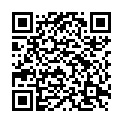|
|
|
| Module code: IBB-510 |
|
- |
|
30 |
| Semester: 5 |
| Mandatory course: yes |
Language of instruction:
English |
Assessment:
Proof of achievement from the foreign university, study report. If applicable, qualified certificate of practical experience.
[updated 04.02.2020]
|
IBB-510 International Business, Bachelor, ASPO 01.10.2020
, semester 5, mandatory course
|
|
The total student study time for this course is 900 hours.
|
Recommended prerequisites (modules):
None.
|
Recommended as prerequisite for:
|
Module coordinator:
Prof. Dr. Petra Garnjost |
Lecturer: Prof. Dr. Petra Garnjost
[updated 25.11.2019]
|
Learning outcomes:
After successfully completing this module, students will:
have increased their knowledge and understanding of the people, history, traditions, and culture of the host country,
experienced a different learning environment while studying with host country professors and students,
have increased their ability to adjust to a different education system,
be able to reflect on their own culture and how it determines their values, behavior and attitudes,
have improved their ability to adapt to diverse situations,
have learned to problem solve by themselves or in teams in a different cultural environment,
have increased their level of self-directed learning.
[updated 04.02.2020]
|
Module content:
The study abroad period is an integrated part of the International Business Program and it is supervised and coordinated by the International Coordinator at the htw Business School. While studying abroad, students are enrolled in several courses at the partner university to earn an equivalent of 30 ECTS. Students are advised to choose the equivalent of 10 ECTS courses that will deepen their knowledge in their focus area at the htw, if possible. The selected courses are documented in a learning agreement that is signed by the International Coordinator before term start at the partner university. The recognition of the ECTS/equivalent of the non-European higher education institution acquired abroad is based on the transcript of records, bulletin de notes or a corresponding document.
[updated 04.02.2020]
|
Teaching methods/Media:
Study at a foreign partner university, including the teaching methods used there in the selected modules.
Practical work; study report on practical work
[updated 30.01.2020]
|
Recommended or required reading:
Literature used at the partner university
[updated 27.01.2020]
|

